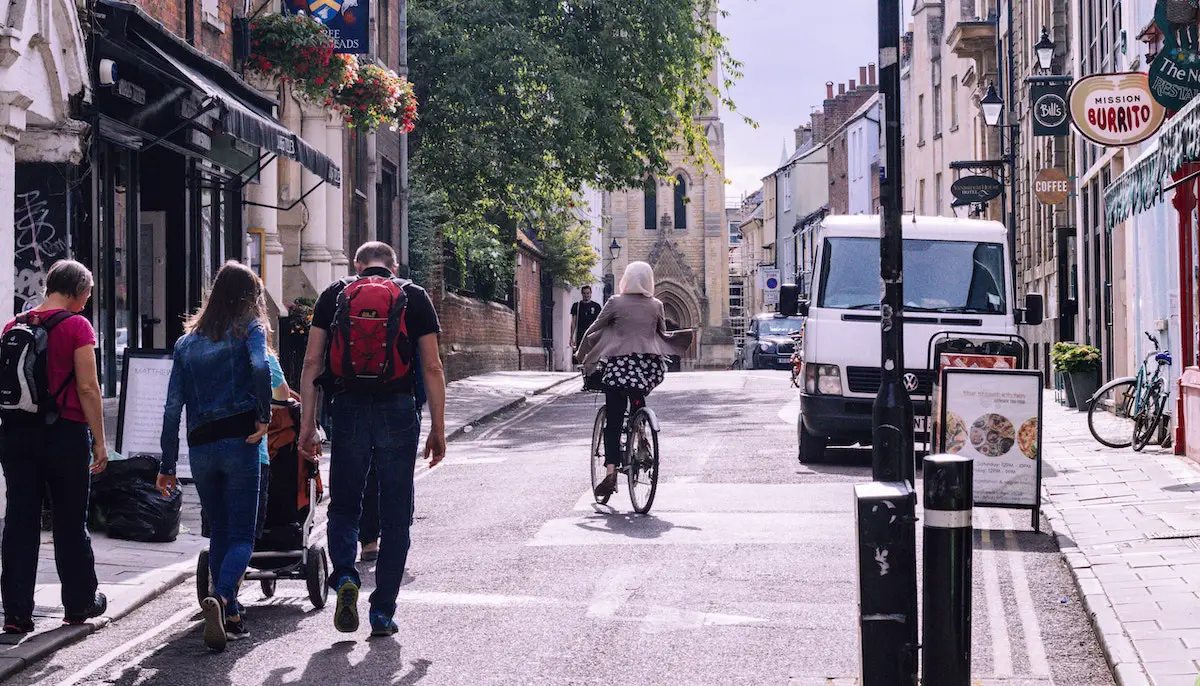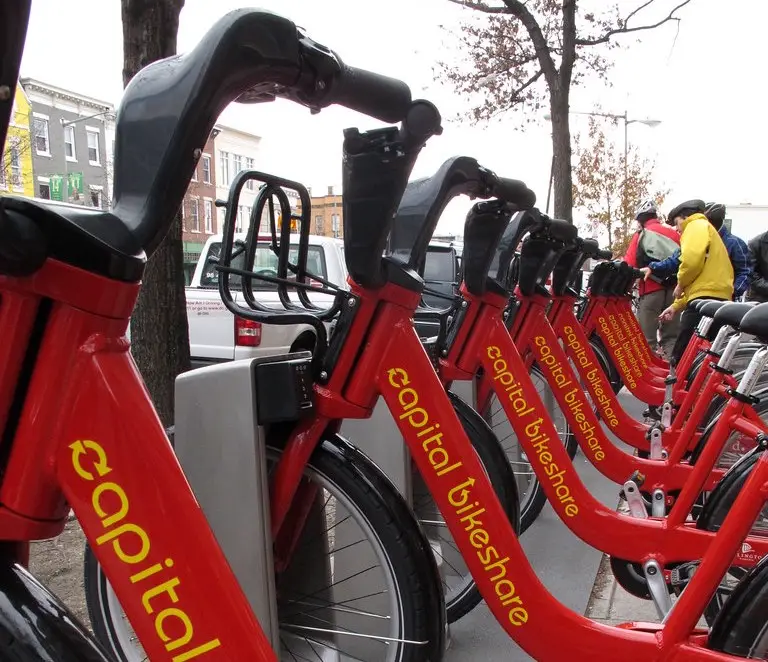Warsaw has achieved a lot since abandoning communism in 1989. The Polish capital has grown at an incredible pace, creating a city with lower unemployment and higher GDP per capita than the Polish average. The city also has some sustainability innovations under its belt, with the University of Warsaw’s incredible green roof a noteworthy example. The bicycle, however, has not been so lucky.
Central Warsaw suffers from congestion. In a country where the car was once an impossible purchase, the rise of the automobile as a status symbol has created a city centre which is far from bicycle-friendly. A lack of bicycle infrastructure in central Warsaw doesn’t help either.

Close to the city centre, this bicycle crossing is clearly marked, informing pedestrians, cyclists and road users that this patch of the road is intended for cyclists.

Segregated bicycle lanes then emerge, offering Warsaw’s cyclists a brief moment of cycling perfection. This particular stretch is located alongside one of Warsaw’s most popular parks, with the approach taken to its maintenance reminiscent of communist times when certain parts of the city were maintained to a very high standard whilst other areas were left in decay.

Some of Warsaw’s parks are getting designated cycle lanes, with the use of separate materials illustrating the intended function.

Most of Warsaw’s central bridges have segregated bicycle lanes, though facilities come to abrupt end on entering the city centre itself.

Where Warsaw has cycling facilities, segregation appears to be the main approach. Considering how busy the city’s roads are, and the poor condition of Polish roads in general, this is a blessing for city’s few cyclists.

As the city undergoes further redevelopment, cycling facilities are emerging. This stretch is located in east Warsaw and runs alongside the new Warsaw stadium which is being built in time for the Euro 2012 football championship. Bicycle use is clearly a consideration as Warsaw grows, however, as it currently stands the city’s infrastructure is far too inconsistent to encourage cycling as a day-to-day form of transport.


